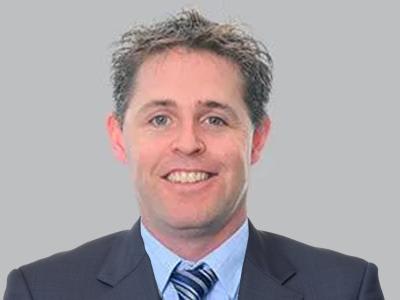As a doctor, pharmacist, dentist, or allied health professional, your days are spent caring about the health and wellbeing of others.
With long hours and a demanding workload, it’s easy to let your health and wellbeing take a backseat – let alone taking the time to plan for the future.
But if an unexpected situation were to occur, and injury or illness prevented you from working, this lack of planning could leave you and your family in a very difficult predicament.
While everyone understands the value of insurance to protect against untimely events, it’s important to note that not all insurance policies are created equal. They also shouldn’t be seen as a “one-size-fits-all” – especially when there are specific types of insurance policies available that cater to a person’s unique personal and professional circumstances.
When it comes to planning for your future health and wellbeing, here are 5 dos and don’ts for insurance for health professionals…
1. DON’T rely on default insurance in your superannuation
Within superannuation, most people would have Life Insurance, Total and Permanent Disability (TPD) Insurance, and some may even have Income Protection insurance.
Sole reliance on these insurances is often tied to an assumption that they:
- Contain a sufficient level of cover to meet your needs;
- Cover the various risks you might be exposed to in your field; and
- Are likely to be paid out if you make a claim.
While it would be ideal if all of these were the case, it certainly doesn’t always pan out that way.
2. DO find a tailored policy
Not only are there specific policies for the health sector, but some insurance providers offer policies tailored to professions – such as specific policies for dentists, physiotherapists, GP's, and so on.
These policies cater to the different risks and personal circumstances that are common to professionals who operate in that field.
The key factors to consider when selecting a tailored insurance product as a healthcare professional include:
- If you’re a high-income earner, can you access a higher level of cover?
- If you’re an intern, how do you show proof of income?
- Does the provider specialise in your field?
- Do they have a good track record of honouring claims?
- What is the cost of the premium vs the level of cover?
Some policy providers target certain professions, so they go beyond the traditional insurance allowances to offer better features and benefits (such as needlestick benefits which are of particular interest to surgeons, nurses, and phlebotomists).
It’s a matter of finding and comparing these providers to decide which policy best suits your needs.
3. DO think about income protection
Your ability to earn an income is your greatest asset so it’s worth insuring it! Income protection gives you peace of mind that you will have money to live, pay bills, and support yourself (and your family) if you get sick or injured and have a loss of income – and given the physical nature of many health professions, income protection is a vital component.
Not all income protection cover is created equal when it comes to the level of salary the provider will cover, and to what extent they recognise income generated from self-employment, such as a doctor or chiropractor contracting to various practices.
This is why it’s important to look at niche policies that understand how you work and may be paid, the specific risks you face, and the amount of cover you need.
Lastly, it’s important to note that there is a growing number of policies having mental health exclusions applied. For health professions that are known to have significant impacts on mental health, a policy that doesn’t include mental health support may be insufficient.
4. DON’T wait until you’re older
It’s true that you don’t know what tomorrow holds, which is a good reason to get insurance sorted out sooner rather than later.
However, another reason to act now is that age and health can impact your ability to get insurance and have a claim honoured if you make one in the future.
Be wary of “instant acceptance” insurance schemes that promise cover for any health level at any age. These are often the most concerning when it comes to a track record of payouts.
5. DO seek advice from a financial planner
Insurance can be difficult to navigate. There is a myriad of providers and policies, and finding the best one to meet your needs as a health professional is likely to take considerable time and effort.
You can make the journey easier by working with an experienced financial planner. RSM’s financial planners have proven expertise in helping our clients in the health sector to:
- Review their existing insurance policies
- Understand the level of cover required

- Determine the most suitable policies
- Maximise cover and value for money
- Structure policies as tax effectively as possible
- Review the relevance of policies as circumstances change
A financial planner can also explain the pros and cons of establishing your policies within, or separate from, your super fund or self-managed super fund. Where you decide to house them can have tax and other implications.
The goal is to help you secure cover that contains everything you require and has a high likelihood of paying out, so you have the confidence that your needs as a healthcare professional will be met if you ever need to make a claim.
For more information
To learn more about income protection and other insurance policies for health professionals, contact the financial planning team at your local RSM office.
This page has been prepared by RSM Financial Services Australia Pty Ltd ABN 22 009 176 354, AFS Licence No. 238282.
As everyone's circumstances are different and this article doesn't take into account your personal situation, it is important that you consider the above in light of your financial situation, needs and objectives, and seek financial advice before implementing a strategy.
View the Financial Services Privacy Statement and Policy, Complaints Policy and Financial Services Guide





